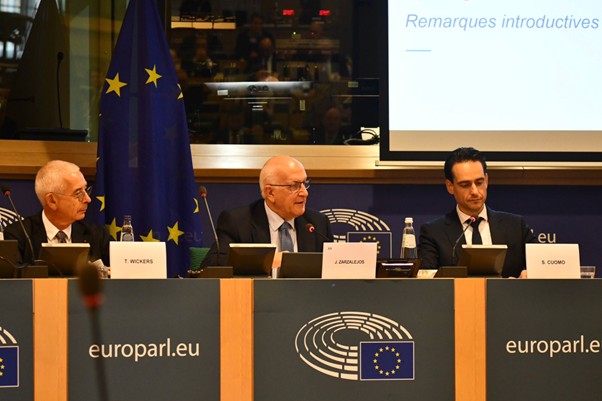JAVIER ZARZALEJOS OPENS THE CCBE PLENARY ON THE DIGITALISATION OF JUSTICE

Last Friday, 3 October, the Chair of the Committee on Civil Liberties, Justice and Home Affairs (LIBE) of the European Parliament, Javier Zarzalejos, took part in the Plenary of the Council of Bars and Law Societies of Europe (CCBE), at the event entitled “Digitalisation of justice systems and its implications for the legal profession.”
In his opening remarks, Zarzalejos stressed that the digitalisation of justice is not a mere technical exercise, but a structural transformation that affects the way justice is delivered, citizens’ rights are protected, and the rule of law is upheld. He recalled that the European Union has placed this agenda at the core of its legislative work, with key initiatives such as:
- the Regulation on the digitalisation of cross-border judicial cooperation,
- the e-CODEX system as a permanent digital infrastructure for judicial exchange,
- the electronic evidence package (E-Evidence),
- the projects on European Case Files and the e-Justice Portal,
- as well as the recent adoption of the Artificial Intelligence Act (AI Act).
All these measures, he stated, form the backbone of the European digital justice strategy, whose objective is to achieve judicial systems that are efficient, accessible, and firmly anchored in the rule of law.
Zarzalejos also stressed that digitalisation must strengthen —and never undermine— both judicial independence and the independence of the legal profession, principles he described as “non-negotiable.” At the same time, he noted that citizens perceive that justice systems are under pressure, and that digitalisation —if implemented with proper safeguards— can help reduce delays, improve transparency, and bring justice closer to the public.
